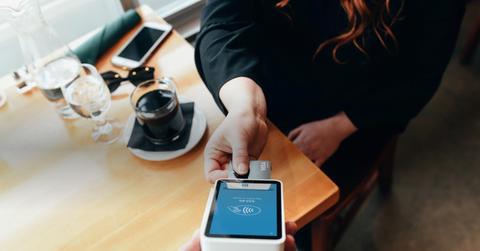How Much Cash You Should Have on Hand at Any Point?
How much of your money should be invested and how much should remain liquid as readily available cash? Here are your questions, answered.
Aug. 22 2022, Published 8:28 a.m. ET
For emergencies, emergency take-out, and everything in between, it’s important to keep cash on hand so you can pay for what you need at the moment. However, carrying too much cash can be dangerous and leaves you open to the pitfalls of inflation.
Here’s how much cash and liquidity you should really keep on hand to keep you safe and preserve your capital.
It's important to balance cash vs. investments.
Your cash (or liquid assets, like digital cash in a savings account) is money that you can access now. It isn't tied up in any investments and doesn’t risk losing dollar value.
On the other hand, investments are a way to grow your money over a period of time. Because of that, they aren't ideal for withdrawing at a moment’s notice.
When you keep all of your money liquid, you miss out on the return opportunities that investing provides. Plus, your money loses value in proportion to the rate of inflation. Interest yields from checking and savings accounts typically aren’t enough to make up for inflation’s bite. That’s why it’s crucial to balance your cash and investments in smart ways.
Keep your emergency fund liquid.
Your emergency fund should be based in cash so you can withdraw it at any point. A general rule of thumb is to keep 3–6 months of living expenses in your emergency fund to cover any unexpected costs, job losses, or other circumstances.
Those with less certain employment may want to save up a bit extra in their emergency fund, upwards of nine months. For example, people who work in an industry looking at layoffs may want to preemptively pad their fund.
Here's how much cash to keep in your checking account.
Everyone’s living expenses differ based on lifestyle and location. To determine how much your monthly expenses are, consider tracking your expenses by the penny on a spreadsheet — just for about three months to help you get an average of what you need to keep in cash every month.
Say you spend an average of $3,500 per month on everything, including rent and utilities, personal purchases, food, activities, credit card bills, student loans, insurance, and your pets. That’s how much you’ll want to keep in your checking account, though not necessarily at one time. If you get paid twice a month, you can split this value throughout the month.
If you live with a partner, you can allocate a separate joint checking account reserved solely for shared expenses. Deposit a set amount of money into the joint account each month. You’ll have to sit down with your partner and come to an agreement on how much each person will contribute, either by personal preference or by comparing each of your cash flows (how much each of you makes and how many individual expenses you're each responsible for).
Because you’re spending this money quickly, you don’t have to worry about inflation eating into it. The problem occurs when you’re letting your money sit around in an account that isn’t working for you, without an investment strategy in place to hedge against inflation.
You’ll want to invest whatever money you don’t spend or add to your emergency fund.


